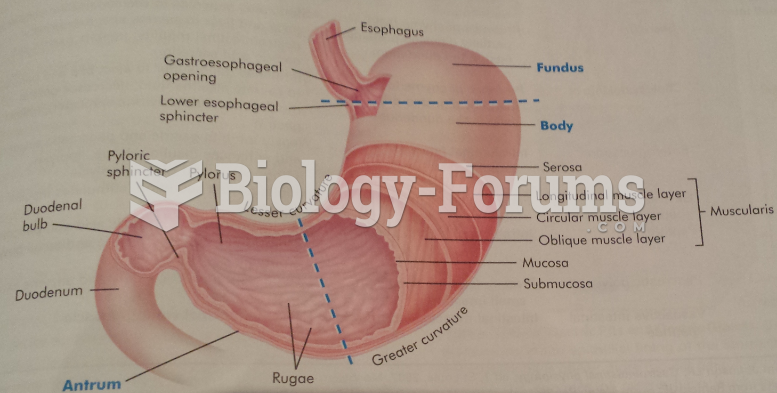|
|
|
Illness; diuretics; laxative abuse; hot weather; exercise; sweating; caffeine; alcoholic beverages; starvation diets; inadequate carbohydrate consumption; and diets high in protein, salt, or fiber can cause people to become dehydrated.
More than 20 million Americans cite use of marijuana within the past 30 days, according to the National Survey on Drug Use and Health (NSDUH). More than 8 million admit to using it almost every day.
Prostaglandins were first isolated from human semen in Sweden in the 1930s. They were so named because the researcher thought that they came from the prostate gland. In fact, prostaglandins exist and are synthesized in almost every cell of the body.
Approximately 15–25% of recognized pregnancies end in miscarriage. However, many miscarriages often occur before a woman even knows she is pregnant.
People with high total cholesterol have about two times the risk for heart disease as people with ideal levels.
 Charles Darwin may be dead and gone but a recent write-in campaign has pitted him against Republican
Charles Darwin may be dead and gone but a recent write-in campaign has pitted him against Republican
 Photograph of the flea that transmits Yersinia pestis to cause bubonic plague, called the oriental r
Photograph of the flea that transmits Yersinia pestis to cause bubonic plague, called the oriental r
 Like most world-changing inventions, the printing press of fifteenth-century Europe took advantage o
Like most world-changing inventions, the printing press of fifteenth-century Europe took advantage o




